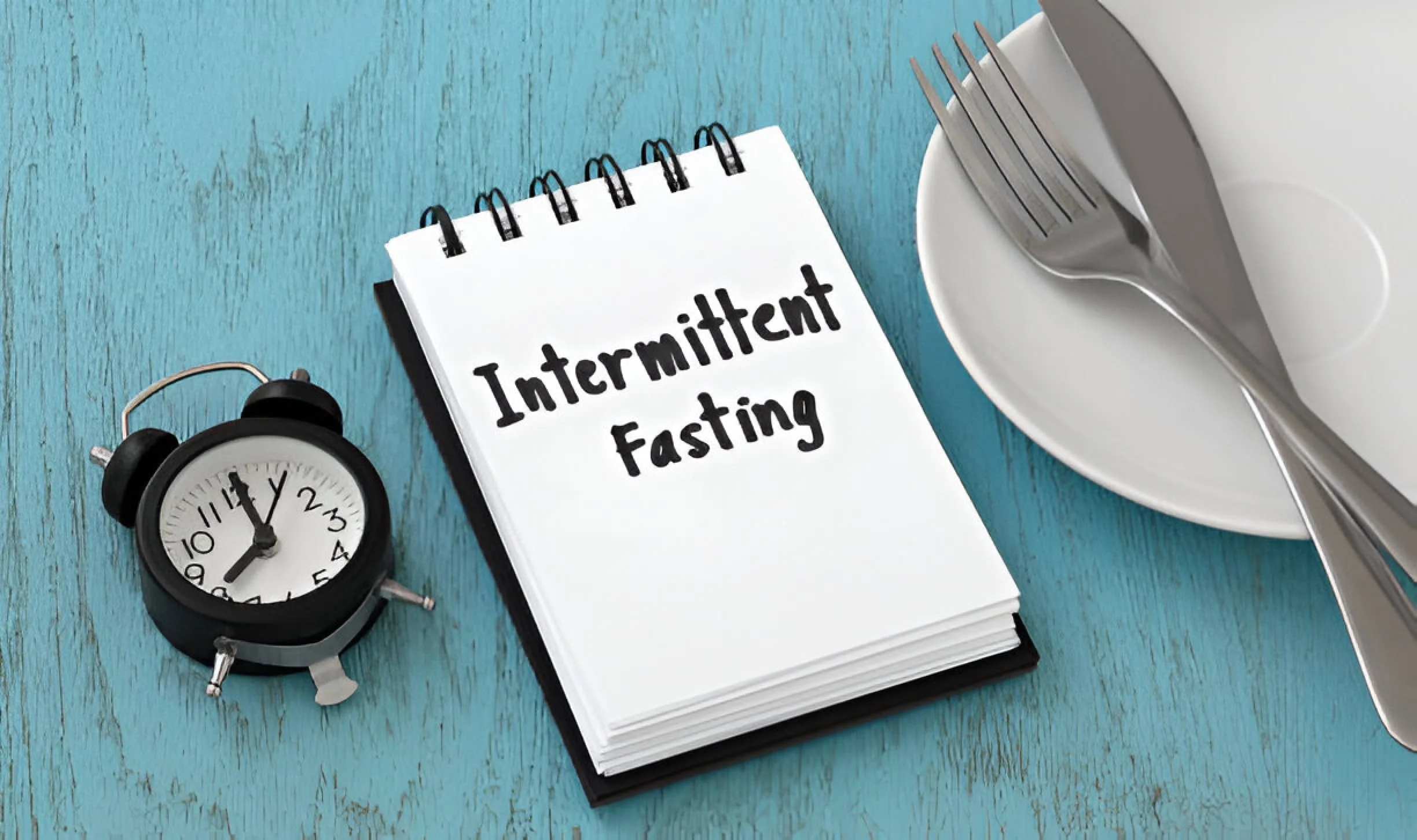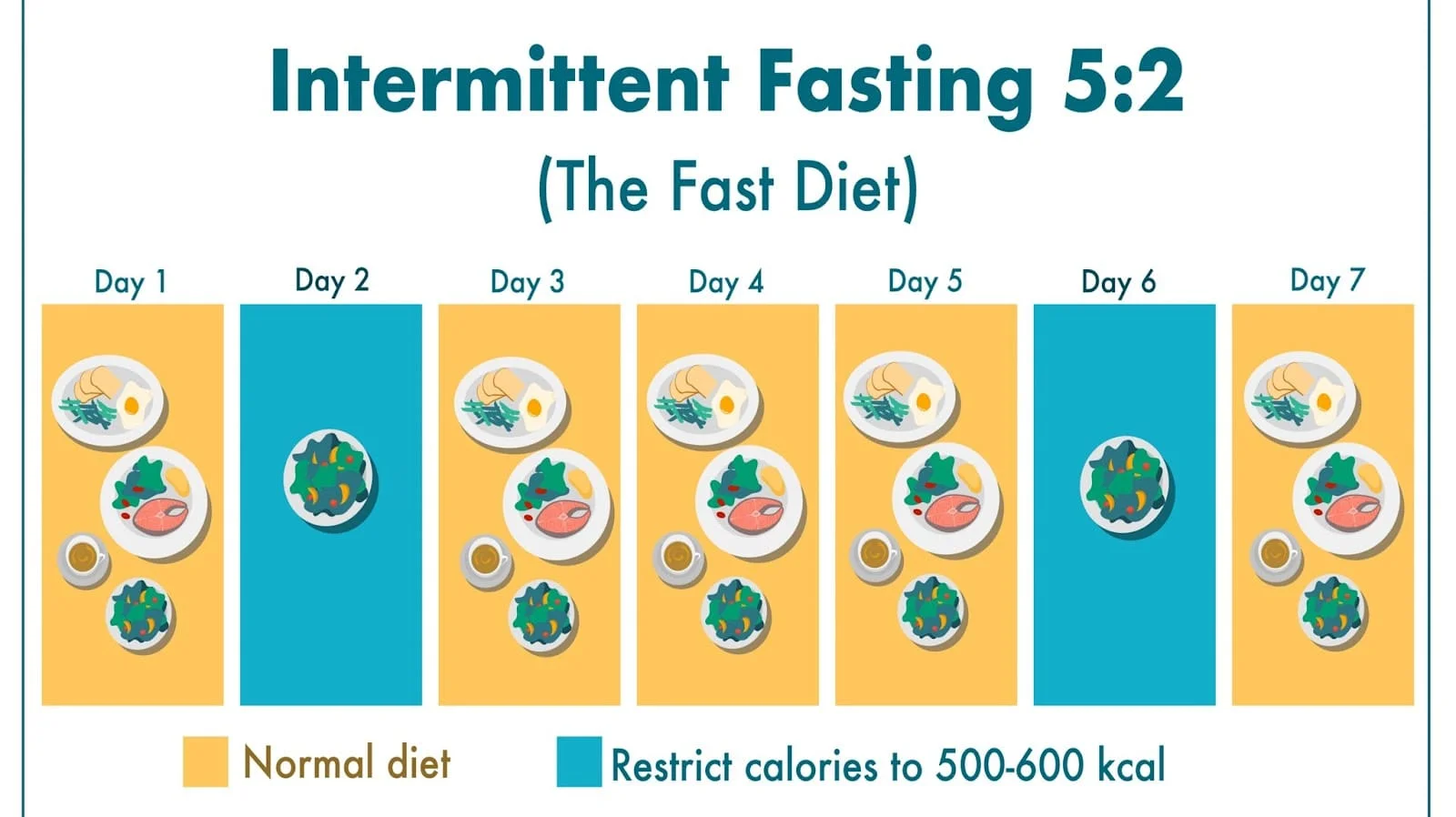Is Intermittent Fasting good for your health?
Aug 13, 2024 ∙ 9 mins read

Fasting has been around since the very earliest days. It is feeding (with minimal effort expended) that is a relatively new concept. Historically, man fasted till he could rustle up game to feed his starving family.
Our grandparents used to fast before religious days to regulate their bodies and minds. Today, when we have fridges bursting with food, cupboards full of meal ingredients and Swiggy / Zomato on speed dial, the time window between one meal and the next is shrinking rapidly. Tell someone you are doing fasting for your health. You will hear a wide variety of responses from shock-horror to sober lectures on how it is harmful to starve yourself and it is always better to practice moderation.
But, as Coach Arvind Ashok says around these parts, moderation is an expert move. Meaning, it takes strength of will to exercise control over our choices. For most of us, including Coach Arvind, it is easier to not have these foods that trip us up around at all. Be they "health foods" or junk food, when it comes to long-term health benefits, the most important thing is to refrain from overindulging in any kind of food.
First, what IS intermittent fasting?

Intermittent fasting, or IF, is not a "diet" in the technical sense. It is more of an eating pattern, another route to a calorie-restricted diet. By giving your stomach a break from constant grazing and intake of food we have now become accustomed to, we give our digestive system time to catch up. And doing so, have a positive effect on other health markers like hormone levels, high blood pressure, cardiovascular disease, and fat loss.
For the fitness-minded, the most popular form of the intermittent fasting diet was the Leangains method made popular by Martin Berkhan. In it, he popularised restricting your daily eating window to only 8 hours and having a fasting period of 16 hours. This, Berkhan said, will offer a body many benefits, such as regularising blood sugar levels, reducing fat stores, better cardiovascular health, and muscle gains.
For the regular folk simply interested in following a weight loss method that will give them an eating plan that won't deprive them of their favourite foods, British television personality, and journalist Dr. Michael Mosley's methodology worked well. Through his Fast Diet books and newspaper columns, Dr Mosley made this simple and basic concept of time-restricted eating more mainstream. By following his method, you chose two non-consecutive days of the week when you ate much fewer calories (think 600 - 800 calories for the whole day) and this was enough to make a significant difference to your body weight and composition.
How does Intermittent fasting work?

To understand this, first, we must understand the process of digestion. It starts in our mouth, with the secretion of saliva. Saliva helps to break down the food in our mouth to a bolus that travels down the food pipe to the stomach Stomach acids help break down the food further and send it through to our small intestine. Stomach enzymes from the pancreas and bile from the liver get mixed into the food and help break it down. Nutrients get absorbed into the blood and the leftover waste makes its journey to be eventually expelled.
The pancreas also secretes insulin, which helps to regulate the amount of sugar in the blood. When we constantly keep ingesting some type of food or the other, there is no break to this process. Our body has to constantly keep the digestive fires going. The pancreas has to keep pumping out insulin to balance out the constant spikes in blood sugar.
This is where intermittent fasting comes into play. When we have a restricted eating window, for example, of 8-hour duration, the remaining 16 hours act as a much-needed reprieve to the system. In this time, if there is an energy demand, the body turns to its stored resources of fat. Without this, our body will be reaching for its easiest resource, sugar. This metabolic switch, ie, burning fat for energy production can help with fat loss. When you prolong this period, you aid in your body's efforts to burn fat for fuel.
What are the different types of Intermittent fasting?
5:2
This is the methodology made famous by Dr Michael Mosley in 2013. For two days a week, you practiced severe calorie restriction. Before you feel deprived or faint from hunger, the other five days, you are free to eat the full 2000 calories without worrying too much about it. With periods of fasting no more than twice a week, many thought the 5:2 a good idea and a much easier form of intermittent fasting
Alternate-day fasting
This is just another form of 5:2. Literally, follow an intermittent fasting plan on alternate days. Every other day, take your foot off the pedal loosen up your belt and eat off your plan. Well, within reason, of course! Your fasting days cannot undo limitless binges, after all!
16:8
Martin Berkhan's method was hugely attractive to the fitness community as he said that not only would following the Leangains methodology result in "sure-fire fat loss" but also muscle gain. His target audience was the seriously fitness-minded and muscle loss is the last thing they would ever go for. By working out on alternate days and eating a diet heavy on healthy foods including animal protein, Berkhan's method promised good things to those willing to fit their healthy diet into an 8-hour window for eating.
OMAD
Arguably the most extreme option out of the various intermittent fasting methodologies, OMAD stands for One Meal A Day. Proponents of this IF format fast for 20 hours and have a very narrow eating window of just 4 hours. Effectively, eating the day's calorie requirement in one big meal. Even your traditional diets could be made to suit OMAD way as you could just eat your regular foods in one go.
What are the health benefits of Intermittent Fasting?
Cell repair and autophagy
This is the most attractive and well-touted health benefit of intermittent fasting. By breaking down and reusing old cells and cell parts, the human body can repair itself - this is the idea of autophagy. And fasting is supposed to be the best way to accelerate autophagy. So what is so attractive about it? Anything from your garden-variety cell repair to cancer treatment.
Improve insulin sensitivity
For those having metabolic disorders, insulin resistance is something they have to deal with. This happens when your cells do not respond to insulin very well. This causes the insulin level in our blood to rise, to dangerously high levels. Prolonged insulin resistance leads to diabetes and further complications. So, what can be done to make our cells more sensitive to insulin? Believe it or not, fasting helps! By giving our body a break from ingesting food, we allow the insulin to stop spiking and come to an even keel. This also helps people with other hormonal irregularities like PCOS.
Fat loss
This should be a no-brainer - one would think the restricted eating window of Intermittent fasting will lend naturally to a reduction in our calorie intake and mindless eating. While in reality, it is slightly more nuanced. Our body secretes the hormone and neurotransmitter norepinephrine and fasting has been found to increase the production of norepinephrine. This is good news for those trying for weight loss as one of its jobs is to trigger the release of glucose from the body's energy stores, thereby enhancing fat burning.
Inflammation
This is the buzzword in the wellness industry today. What was originally the body's natural response to irregularity became the most bandied-about word thanks to social media. But the truth is, chronic inflammation leads to a litany of issues such as metabolic syndrome, obesity, Type 2 diabetes, autoimmune disorders, etc. Inflammation also vastly increases the risk of cancer. Intermittent fasting has been found to reduce inflammation in humans. By following a time-restricted method of eating and a diet rich in nutrients, our bodies can fight off inflammation.
Heart health
Arguably, the biggest impact of intermittent fasting is on our cardiovascular health. Fasting has been found to improve markers such as blood pressure, cholesterol levels as well as inflammatory markers. As any cardiac specialist will tell you when you work on these markers and reduce the risk factors, you help lower your risk of heart disease.
Cognitive health
There's been a growing body of research on the importance of diet and the gut-brain axis for cognitive function and brain health. Numerous studies and medical trials based on animal models have found that intermittent fasting has a lasting impact on the gut microbiome and the gut-brain axis. This is fantastic news for those with a family history of Alzheimer's disease and other cognitive disorders. As intermittent fasting has been found to improve brain function and structure, by adapting it today, maybe we can improve our brain health and stave off degenerative brain diseases in the future.
What are the risk factors of IF?
IF is not the panacea for all ills. There are some negative side effects attached to this diet.
- While it may seem attractive and easy to have a short eating window as an effective method of fat loss, it is easy to get carried away. A lifetime of ills cannot be fixed overnight by this (or any other method). By drastically reducing the number of hours suitable for eating, it may be possible to end up with nutrition deficiency. This will occur when the diet is not well thought out and balanced with adequate micro and macronutrients.
- Hunger is a natural mechanism. It sends signals to our brains to look for nourishment. When we suppress the hunger pangs and try to channel them for a short period, it effectively means going against our body's instinct. Especially in the early days, it can lead to panic overeating and potentially unhealthy food choices.
- Having a meal is a social activity. When we move away from this, by following a fasting period contrary to those in our social circle, we may experience social isolation or feelings of deprivation. This may cause us to feel like this doesn't fit with our lifestyle, causing undue stress.
- In the early days of adaptation, the fasting period may cause a dip in the energy levels and in turn, impact physical performance. This is very important to athletes and fitness professionals. But as the Leangains methodology has proved, it is possible to overcome this and achieve success.
- As with any method, preexisting health conditions may be exacerbated by intermittent fasting. And IF is not suitable for those struggling with eating disorders or chronic disease. This is why it is best to consult a health care provider before embarking on any kind of drastic changes.
At the end of the day, for a human body to lose fat, you need to be in a calorie deficit. Unless caloric intake is restricted your body can't lose fat. If you want to successfully follow intermittent fasting, here are some tips:
- Start slow. You cannot undo years of weight gain overnight. Start with a 12-hour split and gradually increase your fasting window. Drop breakfast or dinner - this is the easiest way.
- Drink lots of water. Especially in the beginning, when you actively miss the act of eating, keep your water bottle handy. And keep busy!
- If the thought of skipping breakfast makes you feel faint, have black coffee or tea. They have close to zero calories and will not trigger your digestive process.
- Listen to your body's signals - if you feel like something isn't right, pay attention.
- Balanced diet is a must - fill up with nutrient-dense, fiber-rich foods and ditch the ultra-processed kind. As Coach Raj says, eat foods that do not have an advertisement campaign touting their wonders.
- Always get the okay from your doctor. And if you need the help of professional guidance such as a registered dietitian, do your research before signing up with anyone.
Remember that intermittent fasting is one of the many different approaches we can follow to ensure good health. It is not a short term solution for weight loss or a fad diet so use it wisely, after considering your lifestyle, health markers, and health goals.






